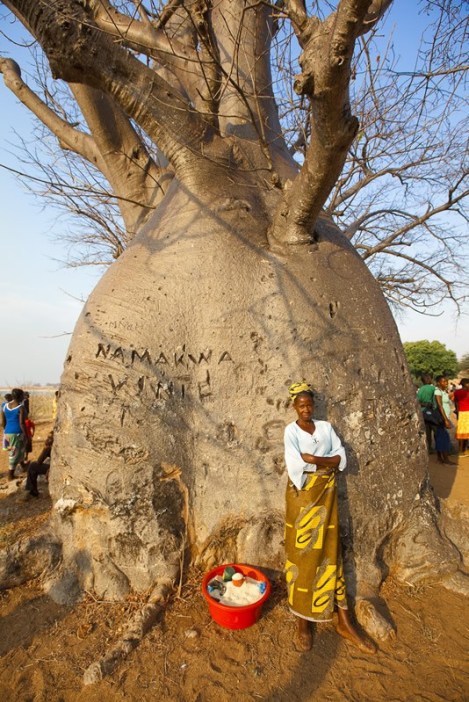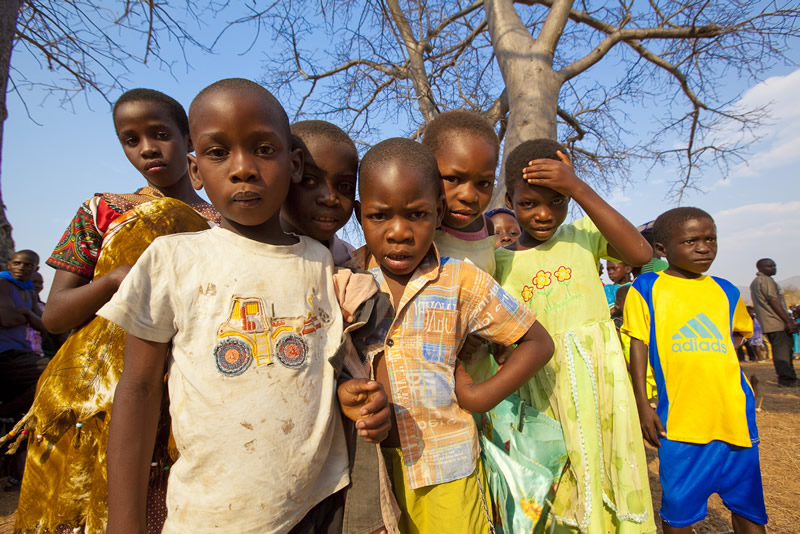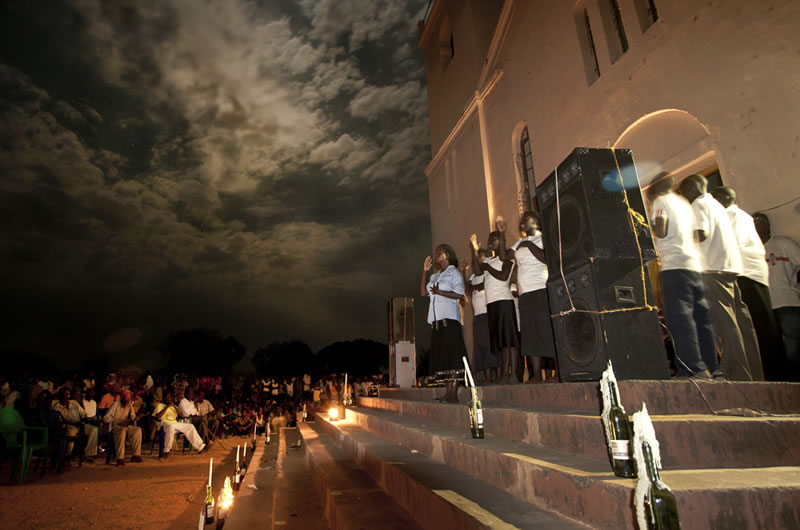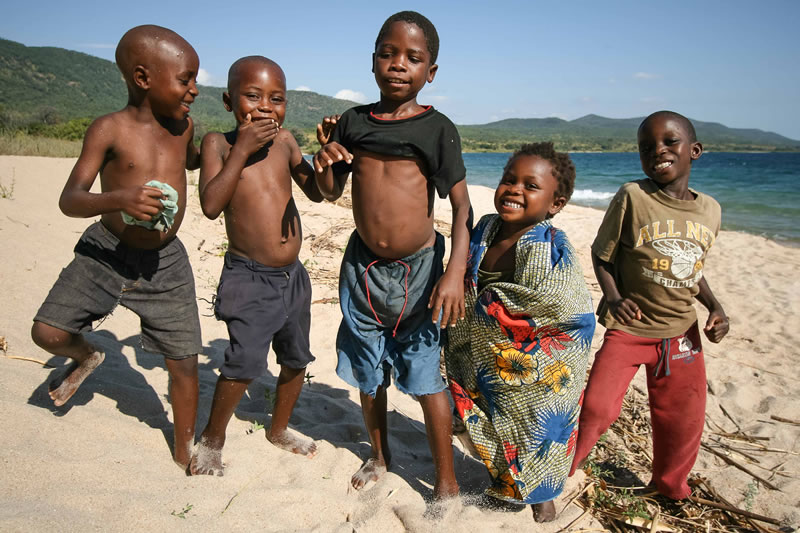Patrick and Paul Simkin
& Manda Wilderness Community Trust (MWCT)
Patrick and Paul Simkin & Manda Wilderness Project
In 1994 two brothers, Patrick and Paul Simkin, discussing the problems of development in Africa, conceived a tourism initiative that would bring in guests and revenue, offering unparalleled beauty and comfort, yet at the same time help local people in the area to receive the benefits of modern development.
They set about looking for a place, and luck soon followed when a friend, Lola Castro, who had been working on a programme repatriating refugees returning from Malawi after the end of the civil war, told of the untouched beauty and wilderness on the Mozambique shores of Lake Malawi. After a canoeing expedition up the little-explored coastline, a potential site for the lodge was discovered. And what a site it turned out to be. For many years, the unique beach, where the lodge is now built, was known as ‘Mchenga Nkwichi’ by the local fishermen of the lake. Named after the squeaking noise it makes when you walk on the sugar-fine sand. In the local ChiNyanja language it literally means ‘Squeaking Sands’. The name Nkwichi stuck, and construction started on the lodge, built using local materials by local craftsmen. Designed to fit in with the local environment, using the natural features of the land, the lodge may have grown in stature from humble beginnings but has , never lost its feeling of intimacy, gathering awards and guests on the way. Nkwichi Lodge became the catalyst for the Manda Wilderness Project, a far-reaching bid to help people in the area around Nkwichi Lodge enjoy the benefits of modern development, including the results of tourism. Through combining tourism with conservation and community development, the project so far has so far positively affected the lives of 20,000 people, and helped ensure the preservation of one of Africa’s most beautiful places.Responsible Tourism
Nkwichi is an integral part of the Manda Wilderness Project, an initiative designed by Nkwichi’s investors to bring the communities of the area together and help them use their environment and resources sustainably, making sure it brings the concrete benefits they need.
Perhaps the best way to describe the Manda Wilderness Project, and its goals, is to imagine an African three-legged pot, which needs three equally-strong legs to stand. The legs of the Project are: 1. Tourism (Nkwichi Lodge): A high quality, low-impact lodge, attracting tourists to the area, training local staff and raising awareness both nationally and internationally. 2. Conservation: Preservation of a unspoilt corner of Africa. 3. Community Development: Practical help for the people of Northern Mozambique, who suffered 25 years of war and generations of neglect.Courtesy: Nkwich.com/
Nkwichi Lodge, conservation & MWCT
Nkwichi is the main support for the other two legs of the ‘African three-legged pot’ and the foremost economic driving force behind the Manda Wilderness Project. Through a bed-night levy, a portion of the revenue from each booking goes to support the conservation project and promote development in the area.
The lodge itself consists of six chalets and two private houses all designed to be low-impact and built using as much local natural material as possible such as local stone, bamboo and thatching grass. This also means, in the event of its removal, the environment would return to its natural state within 2 years. The size of the lodge has been kept deliberately small to reduce the effects on the environment. Efforts have been made to minimise energy consumption at the lodge. The main source of power comes from solar panels and the use of petrol and paraffin is kept to a minimum. Nkwichi also works hard to reduce waste and recycle as much as possible. All kitchen waste goes to the nearby agricultural project to be used as compost; paper and cardboard is recycled to produce paper notelets and cards; old wine bottles are turned into drinking glasses and water bottles. Nkwichi employs 41 permanent staff from neighbouring villages and sometimes up to 60 daily contractors. It is one of the biggest single employers in the whole province of Niassa. A recent survey suggested that each staff member supports 15 others from their salary; this means that the lodge directly supports the lives of over 600 people. It is also estimated that there are knock-on benefits from the lodge for up to 11,000 people, more than half the population of the villages in the area. The lodge buys as many supplies locally as possible – including vegetables and building materials. Some of the staff, who all receive comprehensive training at the lodge, have gone on to set up their own successful businesses, including accommodation, restaurants and even hairdressers!Conservation
The second leg of the Manda Wilderness Project is Conservation. Nkwichi successfully protects its pristine concession of 650 hectares, with 4km of coastline, from poaching, over-fishing and uncontrolled fires. As a result zebra, warthog, kudu and otter are starting to return.
In partnership with the communities, a huge conservation area of 120,000 hectares (roughly the size of greater London) has also been established. The Manda Wilderness Community Conservation Area (MWCCA) covers an area between the lakeshore and the Messinge River, 40km to the east. The lakeshore and escarpment have dry land forests, while thinly wooded savannah and marsh land exists on the plateau. It is a pristine wilderness area, with great potential for both wildlife and tourism – recent wildlife sightings include wild dog, elephant, bushbuck, reedbuck, duiker, sable, hippo and leopard. The aim of the MWCCA is to encourage villagers to work together to make the most of their natural resources – and to avoid over-using them. With the help of local NGOs, Nyanja communities have agreed to stop hunting wild animals and cutting wood for export. Instead they focus on agriculture and tourism – activities which should produce better long-term results. Community participation has been constant throughout the 12-year project. A local community association, known as UMOJI (meaning ‘As One’), has been formed to represent all 16 villages within the area. UMOJI, of which Nkwichi Lodge is a founding member and sits on the current Council of Direction, legally owns and manages the conservation area. A first in Mozambique, each of the communities also hold the titles to their own community land. The next stage in this project is to arrange training for the UMOJI Association to help it manage the conservation area, while implementing a professional management plan for the MWCCA, written in 2009 and approved by the Mozambique Government in 2011. The area will then be opened to tourists who will pay fees for visiting the reserve. This revenue will be used to help cover the running costs for MWCCA, with any surplus going to UMOJI. The success of the Manda Wilderness Community Conservation Area will put the communities’ destiny in their own hands, giving them a sustainable resource for future generations.Community Development
The third leg of the African pot is the Manda Wilderness Community Trust (MWCT), established as a UK Charity in 2004.
It is run by an independent board of Trustees appointed for their expertise in African development. MWCT acts as the primary vehicle for funding local development projects and raising funds for local NGOs already active in Niassa Province. Donations have come from guests at the lodge, friends, schools and churches in Europe and the USA as well as donor government development agencies working in Mozambique. There are sixteen villages working with MWCT and each has a development committee which discusses and approves their most urgent development project. All projects are managed as a partnership between the both sides, with contributions from each. MWCT provides more expensive materials and technical expertise while the villages contribute their time and energy and any local materials needed. The village itself must take responsibility for the project. In this way the development programme gets active community participation and provides people with better skills. The activities of the Manda Wilderness Community Trust include: • Construction thus far of 12 primary schools in the area • Construction of the district’s first maternity clinic • Construction of the district’s first Girls’ Boarding House • Small business and vocational training • Agricultural extension to over 500 farmers in the area through the Manda Wilderness Agricultural Project. • Organisation of sporting and cultural events such as the annual Traditional Dug-out Canoe Race and the Community Gospel Choir Festival.Source: maasai.com/



